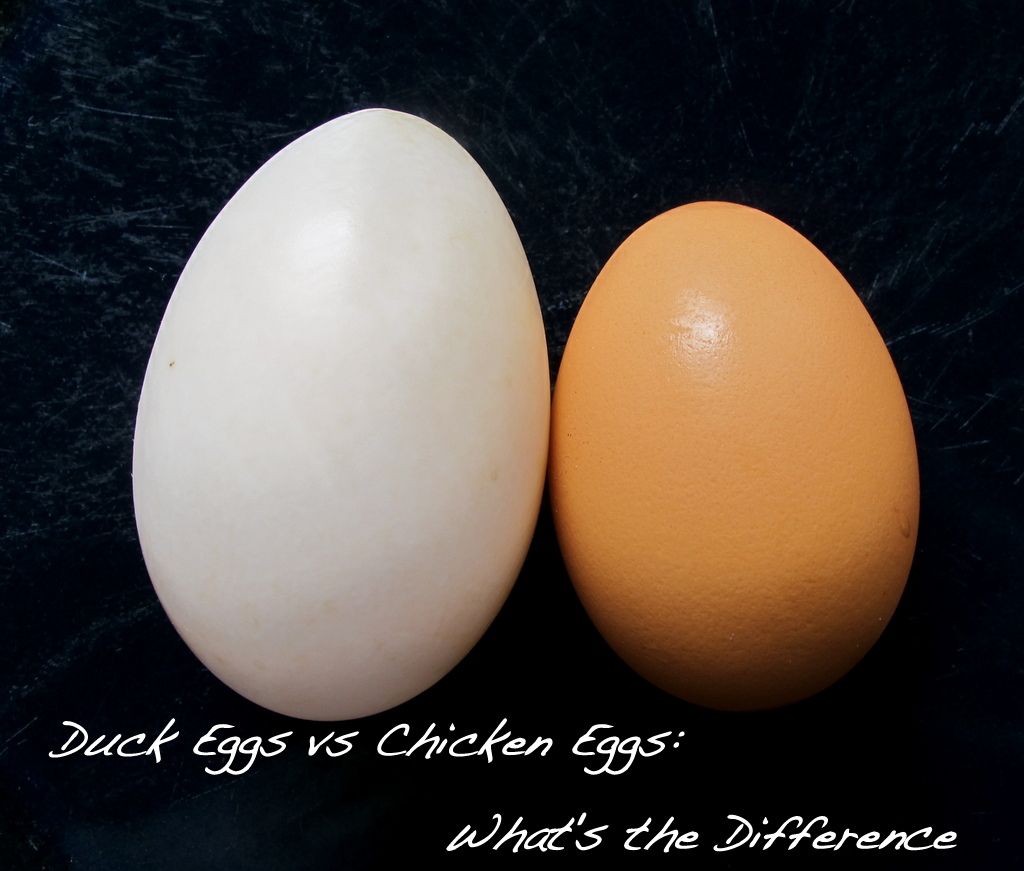Duck eggs and chicken eggs are two popular types of eggs consumed worldwide. While they share many similarities, such as being high in protein and versatile in cooking, there are also several differences between the two. In this comprehensive guide, we’ll explore the nutrition profile, benefits, culinary uses, and other factors to consider when comparing duck eggs and chicken eggs.
Nutrition Profile
Both duck eggs and chicken eggs are nutrient-dense foods packed with essential vitamins, minerals, and macronutrients. However, there are some differences in their nutritional composition:
Protein
Duck eggs typically contain more protein than chicken eggs. A single duck egg may provide around 9 grams of protein, compared to approximately 6 grams in a chicken egg.
Fat
Duck eggs tend to have higher fat content than chicken eggs, particularly in the yolk. The fat in duck eggs is often creamier and richer in flavor due to its higher concentration of omega-3 fatty acids.
Cholesterol
Duck eggs contain more cholesterol than chicken eggs. While this may concern some individuals, research suggests that dietary cholesterol has minimal impact on blood cholesterol levels for most people.
Vitamins and Minerals
Both duck eggs and chicken eggs are excellent sources of essential nutrients such as vitamin A, vitamin D, vitamin B12, and selenium. Duck eggs may contain slightly higher levels of some vitamins and minerals due to their larger size and richer yolk.
Benefits
Nutrient Density
Both duck eggs and chicken eggs are highly nutritious foods that provide a wide range of vitamins, minerals, and macronutrients essential for overall health and well-being. Incorporating eggs into your diet can help ensure you meet your daily nutrient requirements and support various bodily functions.
Protein Source
Eggs, whether from ducks or chickens, are considered complete protein sources, meaning they contain all nine essential amino acids necessary for human health. Protein is essential for muscle growth, repair, and maintenance, as well as for supporting immune function and hormone production.
Culinary Versatility
Duck eggs and chicken eggs are incredibly versatile ingredients used in a wide range of culinary applications. They can be scrambled, fried, boiled, poached, baked, or used as binders in recipes such as cakes, cookies, and quiches. Their rich flavor and creamy texture make them a favorite among chefs and home cooks alike.
Culinary Uses
While duck eggs and chicken eggs can be used interchangeably in most recipes, some chefs and home cooks prefer one over the other for specific dishes. Duck eggs, with their larger size and richer flavor, are often favored for baking, where their higher fat content contributes to moist and tender baked goods. Chicken eggs, on the other hand, are more commonly used for everyday cooking and are preferred for dishes where egg flavor is less pronounced, such as omelets, scrambled eggs, and custards.
Considerations
When choosing between duck eggs and chicken eggs, there are a few factors to consider:
Availability
Duck eggs may be less readily available than chicken eggs, depending on your location and access to specialty markets or farms. However, with the growing popularity of duck eggs, they are becoming more widely available in supermarkets and farmers’ markets.
Price
Duck eggs are often more expensive than chicken eggs due to their larger size and higher production costs. If budget is a concern, you may need to weigh the nutritional benefits of duck eggs against their higher cost compared to chicken eggs.
Allergies
Some individuals may have allergies or sensitivities to duck eggs or chicken eggs. If you have a known allergy to one type of egg, it’s essential to avoid consuming it and choose an alternative that is safe for you.
Conclusion
In conclusion, both duck eggs and chicken eggs are nutritious and delicious foods that offer a wide range of health benefits and culinary possibilities. While duck eggs tend to be larger and richer in flavor, chicken eggs are more readily available and affordable for most consumers. Whether you choose duck eggs or chicken eggs, incorporating eggs into your diet can provide essential nutrients, protein, and versatility in cooking. By understanding the differences between duck eggs and chicken eggs and considering factors such as availability, price, and personal preferences, you can make informed choices about which type of egg to include in your meals.

